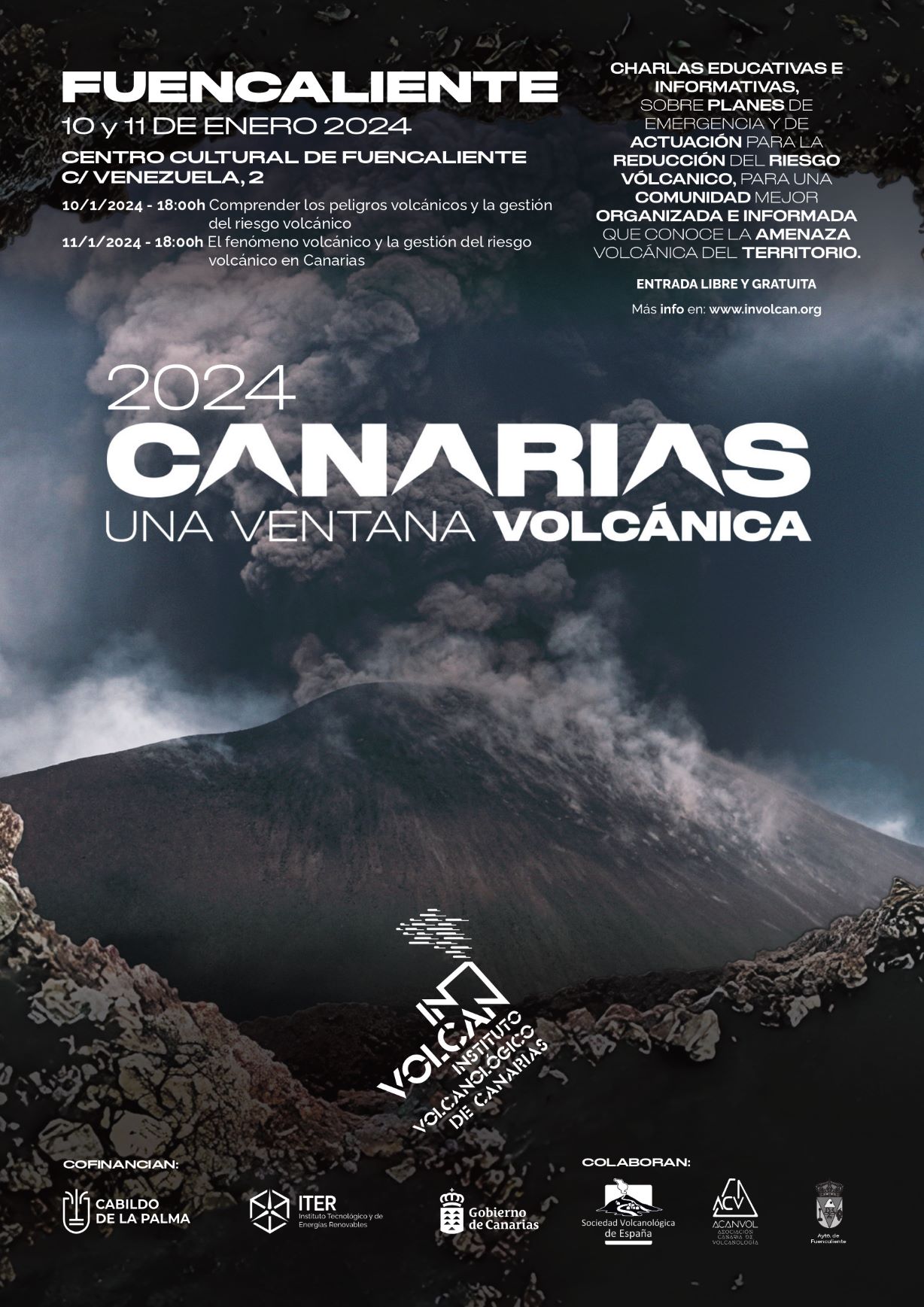The educational program of the Canary Islands Volcanological Institute aimed at contributing to the reduction of volcanic risk in the Canary Islands will take place next week at the Cultural Center of the municipality of Fuencaliente de La Palma.
Next week marks the beginning of the 2024 edition of the educational program «Canary Islands: A Volcanic Window in the Atlantic» with the aim of continuing to bring volcanoes and volcanic risk management closer to Canarian society. This program, promoted by the Canary Islands Volcanological Institute (INVOLCAN), will be held next week at the Cultural Center of the municipality of Fuencaliente de La Palma (C. Venezuela, 2) on Wednesday, January 10th, and Thursday, January 11th, starting at 6:00 p.m. Attendance is free and open to the general public, with particular recommendation for all individuals involved in security and emergency operations, both professionals and volunteers, residing in the municipality.
The educational program «Canary Islands: A Volcanic Window in the Atlantic» was established in 2008 in response to the need to inform and educate the population residing in the Canary Islands about the various hazards associated with volcanic phenomena and the actions to be taken to reduce volcanic risk. INVOLCAN has been conducting this activity regularly since 2008, and both the Special Plan for Civil Protection and Emergency Response for Volcanic Risk in the Autonomous Community of the Canary Islands (PEVOLCA) and the Insular Action Plan for Volcanic Risk in Tenerife (PAIV-Tenerife) recommend the periodic execution (annual) of this type of educational programs for the population of the Canary Islands. The ultimate goal of this program is to contribute to making the Canary Islands a better informed and organized community in the face of volcanic risk, capable of effectively responding to volcanic threats that may arise in a volcanically active archipelago.
The development of these educational activities in the islands of Tenerife and La Palma is partially possible thanks to the TFVolcano and LPVolcano projects, co-financed by the Institute of Technology and Renewable Energies (ITER) and the Cabildos of Tenerife and La Palma, respectively. As in previous editions, the collaboration of the Volcanological Society of Spain (SVE) and the Canarian Association of Volcanology (ACANVOL), as well as the municipalities of Tenerife (31) and La Palma (14) hosting this educational program, is counted upon.
Objectives and content of the program:
On the first day, the aim is to inform and educate attendees about (i) the various hazards associated with volcanic phenomena, (ii) the conceptual difference between volcanic hazard and volcanic risk, and (iii) the different actions recommended by the scientific community and international policy guidelines, through entities such as the International Association of Volcanology and Chemistry of the Earth’s Interior (IAVCEI) and the United Nations Educational, Scientific and Cultural Organization (UNESCO), for the reduction of volcanic risk.
On the second day, attendees will learn (i) whether scars or traces of all the different hazards associated with volcanic phenomena can be identified in the Canary Islands, (ii) which area of the Canary Islands has the highest probability of experiencing future volcanic eruptions, (iii) the frequency of eruptive activity in the Canary Islands, (iv) what is understood by historical volcanism, (v) the damage caused by historical eruptions in the Canary Islands, (vi) the probability of possible and future volcanic eruptions in the Canary Islands, (vii) whether volcanic risk is increasing in the Canary Islands, (viii) how the internationally recommended actions for reducing volcanic risk are being implemented in the Canary Islands, etc.

